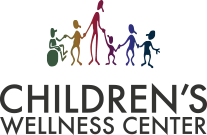Gastroesophageal Reflux
Gastroesophageal reflux occurs when the contents of the stomach, including stomach acid, move upward (reflux) into the esophagus (swallowing tube). In infants, reflux is a fairly common problem (spitting up) that usually clears up with time. Gastroesophageal reflux becomes a disease (GERD) when it occurs enough to cause heartburn pain, respiratory symptoms, and other problems.
In babies, you may see milk or formula coming out of the mouth. Infants may be fussy, cry, arch their back, or refuse feedings. There may be slow weight gain. Symptoms occur commonly after meals. Older children may complain of a sour taste in their mouths, cough or clear their throats, or have a hoarse voice. Reflux may make asthma worse. Long-term problems that occur in adults such as esophagus damage are rare in children.
It can be difficult to diagnose reflux in children. Symptom history is most important. Tests such as X-rays (Upper GI Series), pH probe, and Endoscopy (flexible camera used to look down esophagus) are occasionally helpful. Usually a course of antacid medications is recommended. It is also helpful is to thicken feedings with rice cereal and elevate the head of the bed slightly.
Call our office if you think your child has symptoms of GERD, especially if your child has frequent vomiting, vomiting with weight loss, painful swallowing, difficulty swallowing, heartburn, chest or stomach pain, choking, gagging, or apnea (temporary interruptions of breathing).
